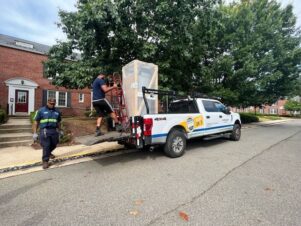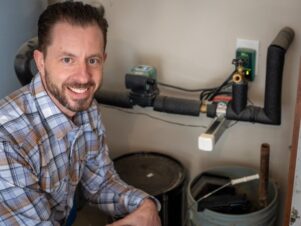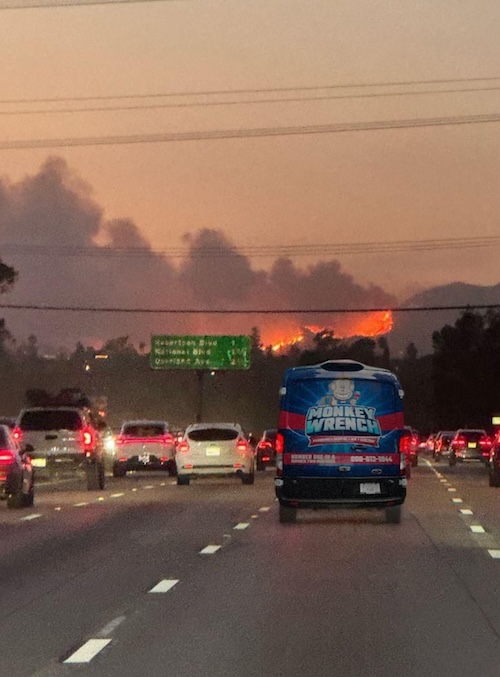 What started as a fairly innocuous Contractor Spotlight turned into something much deeper. For Yossi Wachtel, president of Monkey Wrench Plumbing, Heating, Air & Electric, Los Angeles, the impact of the LA fires just hits different. “When the fire started, our typically overbooked dispatch board dropped to 25% capacity, but Los Angeles will rebuild so that’s not what keeps me up at night. What really shakes me is hearing a customer say, ‘Why fix the plumbing when we might not have a house to come back to?’ That’s not just a cancelled appointment, that’s a neighbor facing the unthinkable,” says Wachtel.
What started as a fairly innocuous Contractor Spotlight turned into something much deeper. For Yossi Wachtel, president of Monkey Wrench Plumbing, Heating, Air & Electric, Los Angeles, the impact of the LA fires just hits different. “When the fire started, our typically overbooked dispatch board dropped to 25% capacity, but Los Angeles will rebuild so that’s not what keeps me up at night. What really shakes me is hearing a customer say, ‘Why fix the plumbing when we might not have a house to come back to?’ That’s not just a cancelled appointment, that’s a neighbor facing the unthinkable,” says Wachtel.
Monkey Wrench’s service area—Pacific Palisades, Santa Monica, West Hollywood, West LA, Altadena—has been affected. “These aren’t just dots on our dispatch map, they are homes where we’ve fixed leaks, installed water heaters, and built relationships over years. Now many of those same homes are in harm’s way. These aren’t just statistics on a news report. These are people we live with, shop at the same supermarkets with, go to the gym with, and work with.”
But what really matters to Wachtel is that Monkey Wrench is a community business, and right now the community needs something different than plumbing services. They need support, resources, and reassurance. “So, while our phones might be quieter today, our commitment to this community has never been louder. We’re here for whatever our neighbors need—whether that’s emergency plumbing assistance or just someone who knows the area and can point them toward help. This isn’t about business anymore. It’s about being there for our community when they need us most. To all our customers, employees, and fellow Angelenos: Stay safe. Material things can be replaced, lives cannot,” says Wachtel.
The Spotlight
Yossi Wachtel’s path to plumbing was anything but traditional. After studying in rabbinical college in Australia, Wachtel found himself drawn to the trades through construction work. What started as painting closets evolved into a fascination with the mechanics of plumbing. In 2007, Wachtel moved to California and founded Monkey Wrench with just one truck. Today, we operate nearly 50 trucks and employ around 100 team members, serving residential customers throughout Los Angeles.
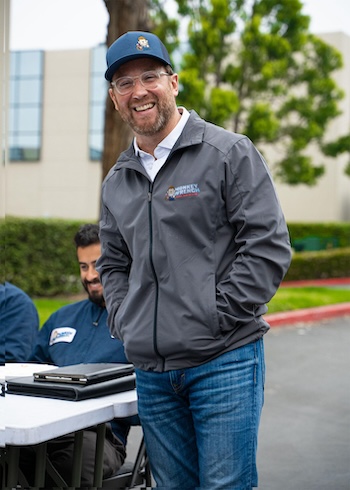 “I discovered plumbing in my late twenties while working in property management. What captivated me wasn’t just the technical aspects; it was the opportunity to be someone’s hero. Every call was a chance to solve problems and make a real difference in people’s lives. After three years learning the trade, I took the leap to start my own company,” recalls Wachtel.
“I discovered plumbing in my late twenties while working in property management. What captivated me wasn’t just the technical aspects; it was the opportunity to be someone’s hero. Every call was a chance to solve problems and make a real difference in people’s lives. After three years learning the trade, I took the leap to start my own company,” recalls Wachtel.
Wachtel has always had that eye for business. “I’ve always been entrepreneurial—I started my first business at age seven,” says Wachtel. “But with plumbing, I saw a clear need for professionals who could deliver exceptional customer service.”
And, because Wachtel is an ordained rabbi, he uses what he’s learned in his plumbing business. “While I chose plumbing over rabbinical work, I still apply those teachings about ethics and service to others in how we run our business.
The Narrative, Reworked
According to Wachtel, and many others enjoying a career in the trades, college isn’t the only path to success. He says that the trades offer an incredible opportunity to build a rewarding career without student debt. “At Monkey Wrench, we have technicians earning six-figure incomes, and more importantly, they’re making a real difference in people’s lives. Plus, you’ll never have to worry about your job being outsourced or replaced by Artificial Intelligence,” says Wachtel.
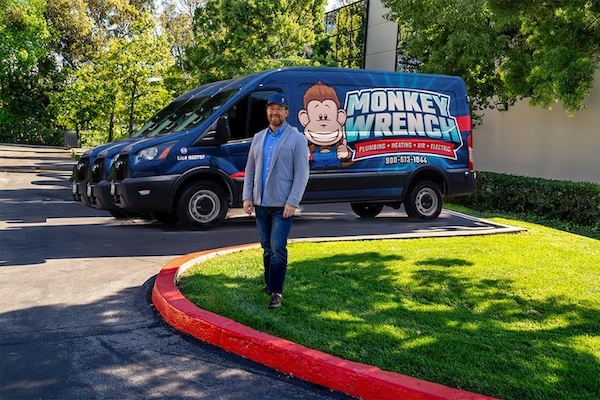
According to Wachtel, the industry should partner more with high schools, create clear career advancement paths, showcase modern technology and tools, highlight success stories and emphasize the entrepreneurial opportunities. “We need to change the narrative about trade careers. It’s not just about unclogging toilets—it’s about problem-solving, using advanced technology, and helping people.”
Mentor and Relation Ships
Wachtel says that his greatest mentors have come through Nexstar Network. “They taught me that being a great plumber isn’t enough; you need to be a great business person too,” says Wachtel.
Not only did Wachtel find mentorship through Nexstar, he says that joining Nexstar was a game-changer for us. “I made a significant investment in that first-year membership when I could barely make payroll—it was terrifying but turned out to be the best decision I’ve ever made. Continuous education isn’t just important; it’s essential. The industry evolves constantly, and if you’re not learning, you’re falling behind.”
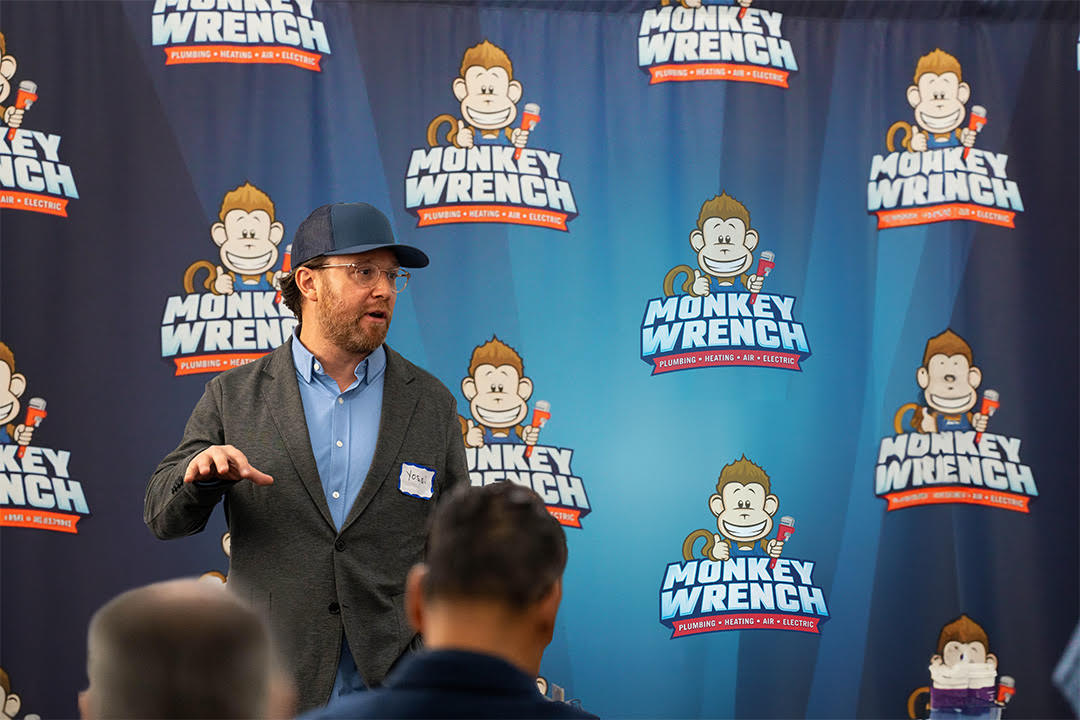
Today, he’s passionate about mentoring others, especially through the company’s developing trade academy, which would help young people discover and develop their potential in the trades. Wachtel says it’s becoming the next big mission at Monkey Wrench. “Nothing brings me more joy than seeing our team members buy their first homes or achieve personal milestones through their careers with us.”
The biggest challenge is finding the right people who share the vision for exceptional service. But for Wachtel, the rewards far outweigh the challenges. “Recently, one of our employees became the first person in three generations of his family to buy a home. Those moments—seeing our team members grow and succeed—that’s what makes this all worthwhile,” says Wachtel.
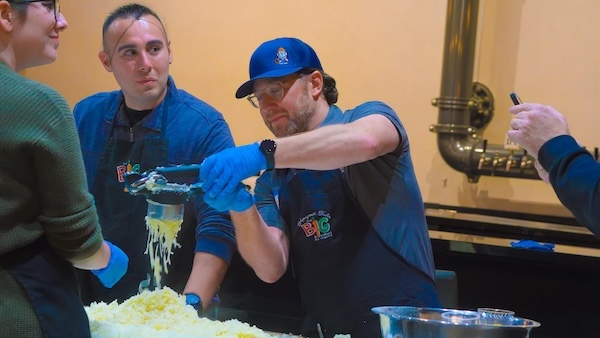
In fact, one of Monkey Wrench’s team members celebrated their 10-year anniversary with the company. “These milestones remind me why we do what we do. It’s about creating opportunities and changing lives through this amazing trade,” says Wachtel.
While Wachtel is proud of the community he’s created at Monkey Wrench, the company is in good hands. Both of Wachtel’s sons work for the business—one is the Operations Manager, and the other works in the marketing department. “It’s incredible watching them grow into their roles and bring fresh perspectives to the company. While I hope they’ll continue the legacy, I want it to be their choice. They need to earn it and want it,” says Wachtel.
Wachtel’s Top Tips for Starting a Business
• Perfect your craft before going solo
• Join a best practices organization (it changed everything for us)
• Focus on building systems, not just fixing pipes
• Invest in your people’s growth
• Stay true to your business model—avoid the temptation of “shiny objects”

